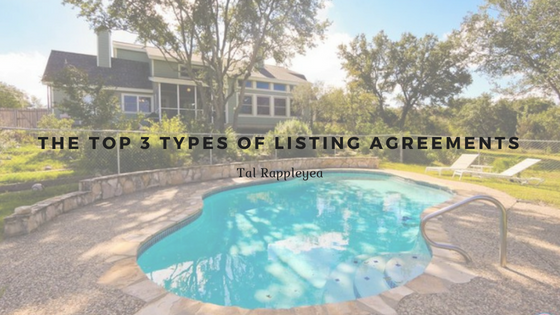Moving – it’s one of the things that many people dread for a copious amount of reasons. Some don’t want to leave the home that holds memories which were created by them and their significant others. Some don’t want to leave the home that they raised their children in, and some don’t want the hassle of packing up an entire home and starting over once again. Whatever the factor is, everyone can agree that moving can be a hastle. However, it does get easier when you find a real estate agent that you are compatible and happy with. It may take some time, but it’s crucial to find to right agent for you.
Once you have found that perfect fit, you have come to the next step in the moving process. This is the first step in the sale of your home – the listing agreement. There around five different types of agreements that are described by Neil Hribar, but most people will see around three. These are the most common ones clients will be presented with. The agreement they pick will depend on what responsibilities the client want to take on and the real estate market.
Open Agreement
An Open Agreement is similar to a “sale by owner” sign that you see outside of homes. It allows the seller to list their home with numerous real estate offices causing a competition between them. The owner will only pay the broker who brings in a buyer that offers an acceptable offer on the house. Many brokers do not like this style of agreement because it opens the door to numerous negative possibilities. One is that the owner can withdraw their listing at any time and without notice. The other is that owners pay only around half of the typical fees real estate agents have since the owner only owes the agent their sales commission. The final one is that the owner could find a buyer themselves and thus owe no one commission, even if brokers have spent time trying to find a right buyer.
Exclusive Right to Sell Listing
The majority of real estate listings fall under this category. The agency has the exclusive right to the listing and are the only ones to show the home that is being sold. This ensures that the agent will be getting their commission by representing the owner and bringing in buyers directly. Also, this prevents the owner from selling it themselves, unless they pay the broker a fee. These contracts do have terms that come with it to help protect the owner. Many contracts are created with a time frame built into it. This time frame will range from contract to contract but the majority are 90 to 120 days long. It’s enough time for an agent to bring in suitable buyers, but help the owner protect themselves against a bad agent.
Exclusive Agency Listing
An exclusive agency listing is along the same lines as an open listing, but the major difference is that an agent represents the owner too. However, an owner still has the ability to sell their home to an appropriate buyer on their own and not pay a commission fee. The agent is allowed to work with other brokers to bring in potential buyers. If this does occur, the owner is responsible for paying both broker’s fees.
Finding the correct agent and listing agreement will take time but it’s important to take the time and find the right fit for you.
